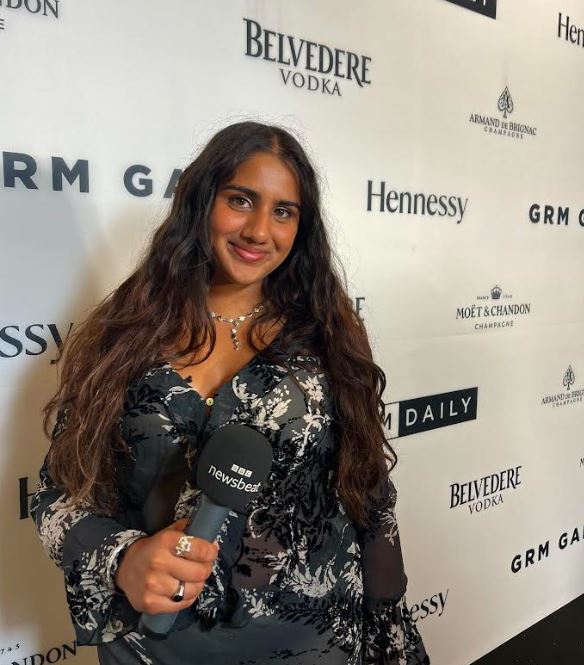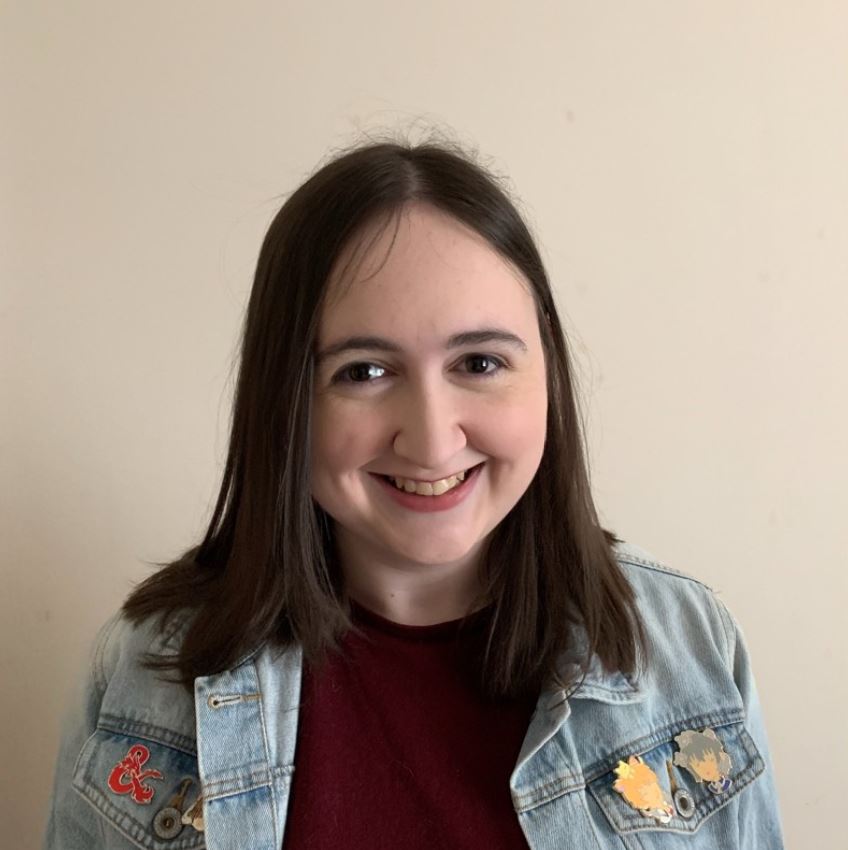Alumni Career Advocates
At Camp Hill Girls, we take pride in the achievements of our former students. Our alumni have gone on to study at top universities and pursue diverse and inspiring careers across various industries. This section celebrates their journeys, showcasing their university history, current job roles, and personal insights. Whether they are leading in journalism, excelling in medicine, making strides in the arts, or innovating in technology, our alumni embody the values of ambition, resilience, and excellence.
Explore their stories and be inspired by the impact they continue to make in the world.
Isabel Clark
Leaving Year: 2019
University: Architectural Engineering, Liverpool & MEng in Civil Engineering with Structure, UCL
Current Occupation: Graduate structural Engineer with The Morton Partnership Ltd.
"I made such amazing friends and memories at Camp Hill but my drama classes, organising the dance show and House Festival are amongst my favourite memories."
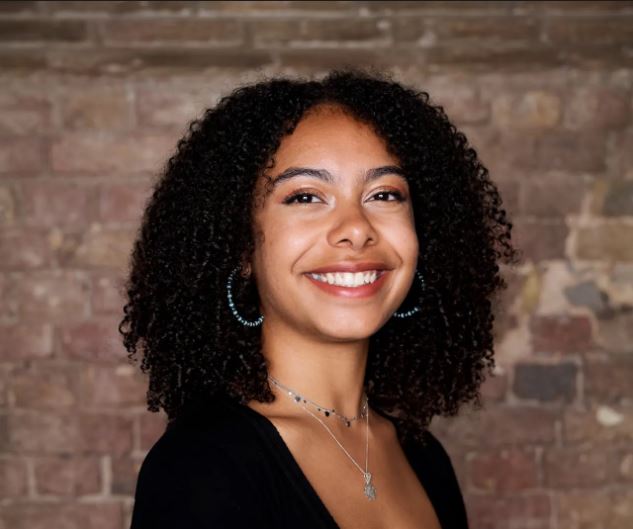
Isabel's Profile
What inspired you to pursue this career?
I didn't always want to go into Engineering but finding myself stuck with what to study at University once completing my GCSEs, I decided to explore potential avenues. When I was in Sixth Form, I did my work experience at a Law firm, attended a History course at Cambridge University, attended a Railway Engineering summer course at the University of Birmingham and competed in the Seimens Inventing the Future competition. However, it was when I attended University open days that I finally decided that Architectural Engineering was what I wanted to study.
What 3 things do you love about your role the most?
1. I work predominantly with Listed Buildings and Scheduled Monumets, so I am able to be a part of the already extensive history of these structures.
2. My role allows me to visit sites, so I get to travel around the country and get away from my desk.
3. I am constantly learning in my role and pursuing my Masters part-time, so there is rarely a dull moment. I am learning how to protect the structures of the past and keep up with the constant evolution of the construction industry.
Briefly describe a typical working day for you
I will either attend university or go to the site of one of our projects, meet with clients and other contractors, then complete follow-up calculations, meetings and report writing.
What did you enjoy about your university studies? How has this helped you in your career to-date?
I really enjoyed getting involved in activities outside of university, such as the Dance Society and working at Redbull UK. By widening my university experience beyond just my course, I explored opportunities in areas I had never thought of trying and was able to boost my confidence by putting myself in new and unfamiliar environments. This has helped me enormously with my confidence in navigating the professional world and feeling comfortable in my own knowledge as well as asking questions whenever I feel out of my depth.
What are your next career goals?
I am currently doing my Masters at UCL, after which I hope to become a Chartered Engineer with the ICE or IStructE.
Favourite Camp Hill memory?
I made such amazing friends and memories at Camp Hill but my drama classes, organising the dance show and House Festival are amongst my favourite memories.
What would you say to your teenage self now if you could?
"Make sure you build in adequate time for rest and relaxing. Rest is so important to being productive and preventing burnout and is a valuable skill to carry forward to university and professional life."
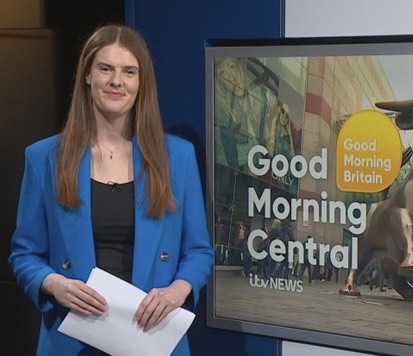
Hannah Ludlow
Leaving Year: 2018
University: History and English, University of York & Broadcast Journalism at City, University of London
Current Occupation: Production Journalist with ITV News Central
"Show Choir was my favourite time of the year at Camp Hill, and I have so many fond memories - from Year 7 until Year 13. It was always so much fun, and I loved every minute of the rehearsals and putting on the shows."
Hannah's Profile
What inspired you to pursue this career?
I have always loved writing and performing, so journalism seemed like a perfect mix of the two. When I was in my final year of university and deciding what to do next, I spoke to a few journalists who told me the job is all about meeting new people and working to tight deadlines, which sounded right up my street. I did a Master's degree in Broadcast Journalism, and both the course and the work experience I did during that year encouraged me to pursue it as a career.
What 3 things do you love about your role the most?
1. No two days are the same.
2. Meeting new people and hearing their stories.
3. Working under pressure and enjoying the adrenaline of a busy news day.
Briefly describe a typical working day for you
Every day is different, as Production Journalists do lots of roles. I might be writing for the website, or producing our early morning, lunchtime, late or weekend bulletins. I might also be presenting the bulletins, or on the road reporting on a story. We work a range of hours; sometimes I start at 4:45am, or on some days at 2pm.
What did you enjoy about your university studies? How has this helped you in your career to-date?
I did an English and History degree at the University of York, and I loved the variety that came with a joint honours degree. I enjoyed being able to choose specific modules that piqued my interest, and also sharing ideas with others in seminars. I particularly enjoyed my dissertation, which was about quack doctors in the 17th century, and combined both the English and History sides of my degree. My degree helped me to hone my writing skills by learning to write clearly and concisely - which is important in journalism. The seminar discussions helped me to develop confidence in public speaking and gather my ideas in my head before presenting them to others.
What are your next career goals?
I would love to become a reporter and presenter full-time. It takes quite a few years to develop enough experience to apply for a reporting job, but I am lucky that ITV News has lots of opportunities to develop, even for someone with minimal experience.
Favourite Camp Hill memory?
Show Choir was my favourite time of the year at Camp Hill, and I have so many fond memories - from Year 7 until Year 13. It was always so much fun, and I loved every minute of the rehearsals and putting on the shows.
What would you say to your teenage self now if you could?
"Be excited about the future and believe that you can get exactly where you want to be - even if you don't know where that is yet. Keep working hard and enjoy the school holidays because you won't get those ever again!!"
Sapphire Francis
Leaving Year: 2019
University: BSc and MSC Clinical Psychology, Kings College London
Current Occupation: Assistant Psychologist in Neuropsychology
"Learning about people and their various lived experiences, while providing a safe space to be vulnerable and navigate challenges, will always be the best part of my role. "
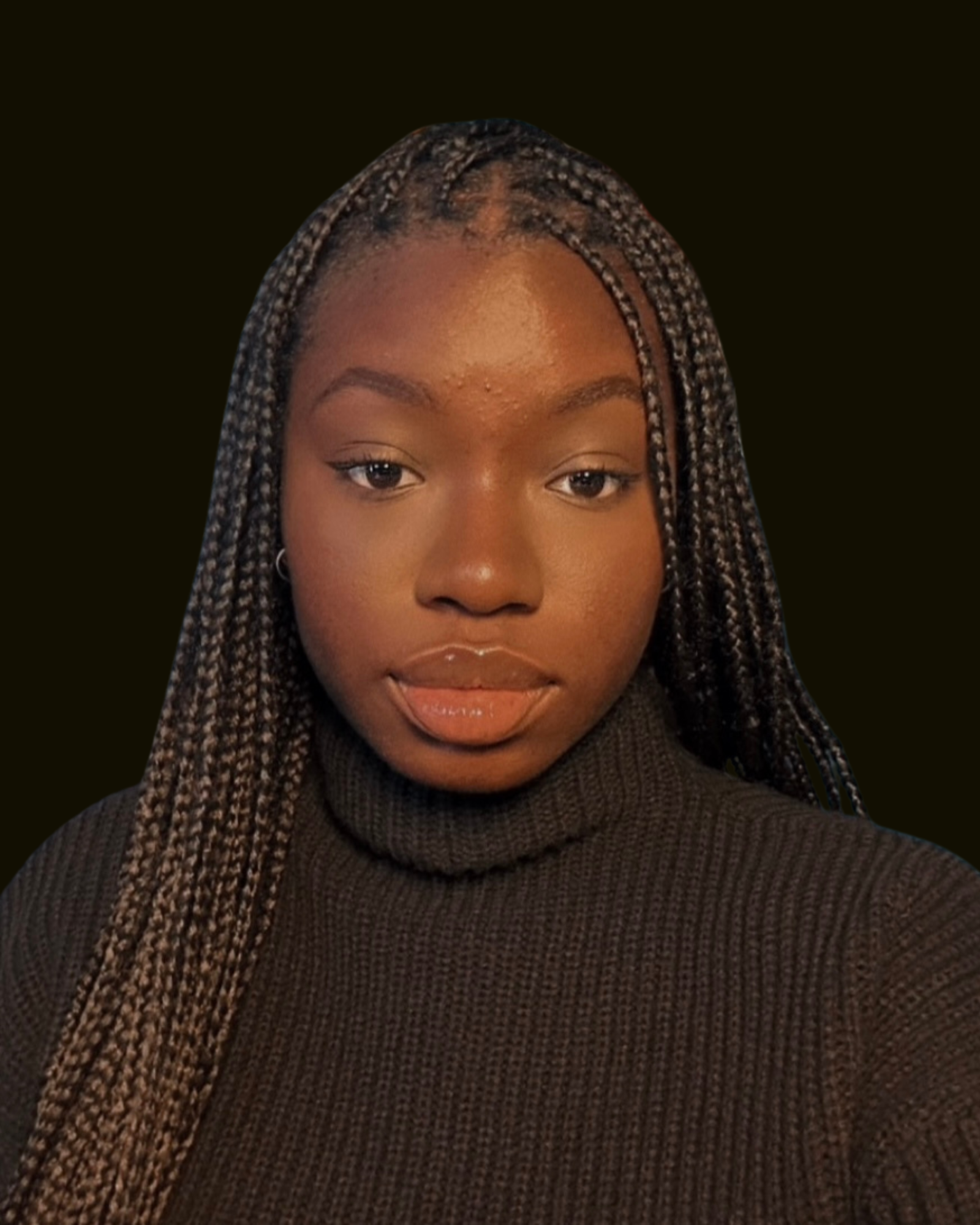
Sapphire's Profile
What inspired you to pursue this career?
I've been passionate about mental health and wellbeing for as long as I remember, even when I didn't have the language to articulate that, that's what it was. I remember researching subliminal messaging for my higher project, which relates to the area of psychology I work in now. After choosing to take A Level Psychology, I completed an EPQ on the stigmatisation of mental health in the Black community. Health and wellbeing are fundamental human rights. However, it quickly became clear that certain groups are disadvantaged in accessing mental health support.
The Assistant Psychologist role is part of the traditional route to becoming a Clinical Psychologist. I've chosen this career in alignment with an innate desire to help others, but particularly those most affected by inequalities in mental healthcare and research.
What 3 things do you love about your role the most?
1. Learning about people and their various lived experiences, while providing a safe space to be vulnerable and navigate challenges, will always be the best part.
2. I love that in my work challenging systems is encouraged. Innovation and research are valued, and my voice and experience are recognised as a tool for needed change.
3. It is varied. Supporting the work of Clinical Neuropsychologists means working with people to understand their cognitive functioning (e.g. memory, attention, problem-solving skills) and the impact this is having on their quality of life. In Neuropsychology, this also means a bit more maths and biology than other areas of Psychology, as well as research.
Briefly describe a typical working day for you
In the morning, I will meet with the Clinical Neuropsychologists to discuss the patient(s) I am seeing. This will involve a discussion of anything we already know about their medical history, their social history, including things like their educational background and their support networks, and their mental health. Depending on the day, I would typically see one patient for a long assessment (these can be 3 hours!) or a couple of patients each for a much shorter assessment. Each assessment begins with an interview, where patients have a chance to give us more information about themselves and their current difficulties. I then ask the patient to complete a series of tasks which help us to understand how their brain is working. I may begin scoring the assessments and writing up report summaries, or do some reading or have a chat with my team about other areas of interest in Psychology.
What did you enjoy about your university studies? How has this helped you in your career to-date?
I really enjoyed how varied my university studies were. People often reduce psychology to mental health, focusing only on Clinical or Counselling Psychology, but some of my favourite modules were in areas I never expected, like Behavioural Economics and Philosophy. I also loved working on projects with staff in collaboration with the student union. Early opportunities to engage in research and interventions gave me valuable experience applying what I learnt in the classroom to support both peers and patients from diverse backgrounds. By the time I graduated, I had developed both a broad and deep understanding of theory and practice.
What was most important to my success, though, was being supported by people who looked like me, shared my experiences, and had gone ahead of meanwhile also having those differences acknowledged by those who didn't.
What are your next career goals?
As an aspiring Clinical Psychologist, I will eventually be returning to university to pursue a doctorate in Clinical Psychology. Until then, I plan to continue to create and share research that platforms the experiences of people most affected by inequalities and challenges the systems that uphold them.
Favourite Camp Hill memory?
I recall good times in the DT and Drama classrooms, spending a lot of lunches there with friends during GCSEs, even though I didn't do Drama!
What would you say to your teenage self now if you could?
"I used to offer my younger self advice to do things differently. Now, I just want to tell her to be proud of herself. You're consistently showing up, despite challenges, and soon you'll see exactly how much you've achieved. Continue to lead by example. Thank God, thank yourself, celebrate and say "well done" before moving on to your next big thing!"
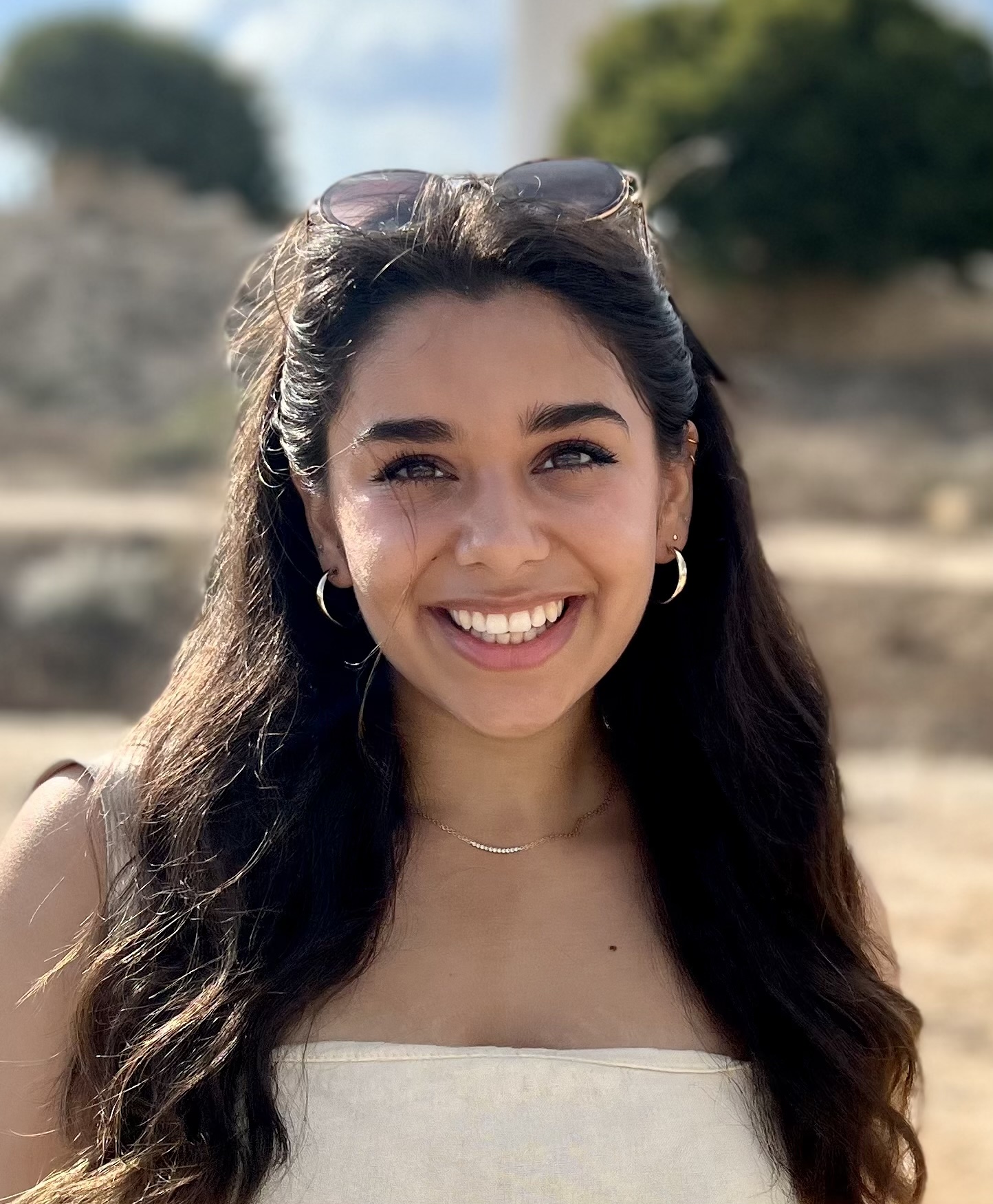
Divya Khanna
Leaving Year: 2016
University: MBBS Medicine, University of Birmingham & Post-Grad Medical Education, University of Warwick
Current Occupation: Doctor (Dermatology Trainee)
"Your path won't look like anybody else's, but that's what makes it yours!"
Divya's Profile
What inspired you to pursue this career?
I was first inspired to pursue medicine after attending a careers talk at Camp Hill, when a group of army medics spoke about the nature of their work. I loved that medicine is a career rooted in both compassion and academia, and uses scientific advancements to help people in their most vulnerable moments. At medical school, I fell in love with dermatology. It's a speciality that combines long-term patient care with surgical procedures, diagnostic challenges, and psychological insight; and it's a field in which you need a sharp eye but also a soft touch, as the visual nature of skin disease often sadly affects how patients feel about themselves, and how others perceive them. Outside clinical work, I've also always loved that medical research can promote improvements in the patient care we practice. This inspired me to conduct research on neglected tropical diseases like leprosy in Brazil, harmful cultural skincare practices in the UK, and rare genetic skin conditions like epidermolysis bullosa.
What 3 things do you love about your role the most?
1. Connecting with patients from all walks of life. Every interaction is a reminder of just how diverse and resilient people can be!
2. Working with my brilliant team at Solihull Hospital, who are so dedicated to improving the lives of patients with epidermolysis bullosa (EB). EB is a rare genetic skin condition that causes blistering in response to even minor friction or trauma, and has a profound impact on quality of life.
3. Whether clinically or through research, it's so nice to know that the work we do can offer hope to patients facing lifelong challenges.
Briefly describe a typical working day for you
My clinical responsibilities involve a mix of seeing patients in dermatology clinics and performing surgical procedures to diagnose and treat skin lesions, often to rule out skin cancer. My current research focusses on epidermolysis bullosa, which is a rare, genetic skin condition that causes severe skin fragility and blistering. My week is fairly varied with a balance of clinical and research responsibilities. An exciting part of my work also involves attending conferences and meetings all around the world to stay up to date with the latest developments in the field, and share the findings from our team's work.
What did you enjoy about your university studies? How has this helped you in your career to-date?
University enabled me to engage with medicine in its broadest sense - not just as a science, but also socially and culturally. I've always been interested in how social inequality and culture impacts health, and this led me to undertake an International Health intercalated BMedSc during medical school. This gave me the opportunity to conduct research on leprosy in Brazil, followed by a second study on cultural skin-lightening practices within British Indian communities. Both experiences highlighted the psychosocial impact of skin and skin disease, and played a huge role in shaping my dream to become a dermatologist. Since completing medical training, I've returned to university twice: once to undertake a Masters in Molecular and Cellular Biology, which helped me build lab-based research skills, and also to complete a PGCert in Medical Education, which helped me develop into a more effective teacher to medical students and junior doctors. Notably, university was not only a place of academic growth, but also where I made lifelong friends and met my wonderful partner!
What are your next career goals?
My next career goal is to complete my academic dermatology training and become a consultant dermatologist. In the longer term, I hope to lead my own research studies on rare skin conditions and skin cancer.
Favourite Camp Hill memory?
Old Bill Jones lived in Hatchet Bay, he walked in the most peculiar way
What would you say to your teenage self now if you could?
"Your path won't look like anybody else's, but that's what makes it yours!"
Jasmine Sandhar
Leaving Year: 2019
University: English & History, University of Birmingham
Current Occupation: Journalism Advanced Apprentice with BBC News
"My favourite memory of Camp Hill was spending time in the music building. Whether it was singing in chamber choir, making group compositions, watching musicals on screen, learning new instruments in lessons or even just chatting to the lovely teachers who worked there."
Jasmine's Profile
What inspired you to pursue this career?
After dabbling in my university's radio station and paper alongside my degree, I fell in love with student media and decided to take a leap to pursue it in the real world. Why journalism specifically? Well, I've always loved hearing and telling stories at the dinner table (the shrewd among you will understand I'm referring to gossiping) and realised there was a way for me to turn that into something more productive. News and current affairs is an ongoing interest of mine that started at school and has now developed into my career.
What 3 things do you love about your role the most?
1. No day on the job is the same.
2. Being able to see how my work makes a difference to people's lives.
3. Getting the chance to do creative and fun things
Briefly describe a typical working day for you
Every day is different. One day I might be taking a train to a city in a completely different part of the country to ask random strangers questions about a story. Another day, I could be on a red carpet interviewing celebrities before watching them perform and receive awards. Alternatively, I'm sitting in the office scripting bulletins, producing packages and planning content.
What did you enjoy about your university studies? How has this helped you in your career to-date?
My entire degree was reading, writing and talking. Those three things are all I do in my career now. I'd say the only difference is I had more time to plan and research my ideas at university. While I do get some time to do this at work, I can't spend days or weeks at a time digging around various libraries - after all, someone has to write the TV bulletins!
What are your next career goals?
I am set to attain my National Qualification in Journalism and secure a permanent contract as a BBC journalist. Following that, I hope to work my way up to senior reporter status and feature on the TV/radio daily.
Favourite Camp Hill memory?
My favourite memory of Camp Hill was spending time in the music building. Whether it was singing in chamber choir, making group compositions, watching musicals on screen, learning new instruments in lessons or even just chatting to the lovely teachers who worked there
What would you say to your teenage self now if you could?
"Stop caring what other people think, whether that be strangers, acquaintances, colleagues, friends or family!
Charlotte Wiggins
Leaving Year: 2018
University: Computer Science, University of Warwick
Current Occupation: Technology Associate at Morgan Stanley
"I think appreciating that you can be passionate about a job in a different way to everyone else and still be very good at it is a really useful thing."
Charlotte's Profile
What inspired you to pursue this career?
I have enjoyed programming since I was at school and chose to do a Computer Science degree. I never imagined I would enjoy working in the FinTech industry, but the complexity and problem solving involved in my job keeps my work varied and rewarding. I feel when you work as a software engineer, you can achieve small wins every day - every time you manage to fix that infuriating bug in your code - and it keeps me really motivated. I love working with my team to create a unique and valuable system, and I get to work on features right from requirement gathering all the way to delivery.
What 3 things do you love about your role the most?
1. Problem-solving.
2. Variety.
3. Work culture.
Briefly describe a typical working day for you
I start almost every day with a stand-up meeting with my squad - this is where everyone gives a brief update on their progress and if they need any help with their work. My mornings usually have a lot of Zoom meetings as I work with a lot of people in the India time zone. These involve planning upcoming work or discussing the best designs for new features. My afternoons are more free for working on my assigned work independently. I currently work on a few different systems, written in Javascript, Java and Python. I also regularly have calls with the business-side users, to understand any new workflows and requirements for the system, and to figure out the priorities of different work items. Currently, I work in an office 3 days a week, and from home for 2 days.
What did you enjoy about your university studies? How has this helped you in your career to-date?
The most useful part of my degree was a group software engineering project. We had a lot of freedom in choosing the goal of the project, and were able to practise project management and working efficiently as a team. This module was definitely the most like what I do in my work now. I think working well with people is always more useful than any specific subject knowledge.
A lot of my time at university was during Covid, so it probably wasn't a very typical experience, but I still made some really great friends that I regularly meet up with.
What are your next career goals?
Later this year I aim to lead my own squad. I'd like to progress into more of a leadership role.
Favourite Camp Hill memory?
I miss the tinsel day pantomimes!
What would you say to your teenage self now if you could?
I think I was (and still am) affected by impostor syndrome a lot when I thought about pursuing a career in computer science. It definitely felt like everyone around me knew a lot more about technology, and honestly they might have done (too many acronyms for me to try and learn) - but what I cared about was solving problems rather than the actual tech behind the solutions. And I think appreciating that you can be passionate about a job in a different way to everyone else and still be very good at it is a really useful thing.
I would also encourage people to look into degree apprenticeships. I work with some of the apprentices at the firm, and they sound like excellent opportunities. I learnt more in about a month of work than I ever did at university, especially as I never really cared much about computer theory. And let's not forget the benefits of avoiding a student loan.
Maria Klimczak
Leaving Year: 2020
University: MA Biological Sciences, UCL
Current Occupation: Audit Associate with Beavis & Morgan Law Firm
"My degree enabled me to develop a strong attention to detail and the ability to work through problems logically, skills that have been incredibly useful in my career so far as auditing requires a similar structured approach."
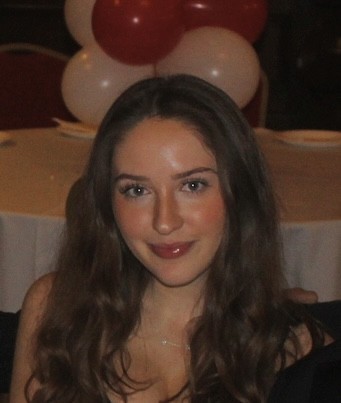
Maria's Profile
What inspired you to pursue this career?
I always enjoyed working with numbers and data, so it seemed like a natural fit as accounting/audit is constant problem-solving.
What 3 things do you love about your role the most?
1. I enjoy the challenge of analysing financial information and the 'lightbulb' moment when things finally click.
2. Though the area of work stays the same, I am always working on a different aspect or client, which keeps things varied and interesting.
3. I love the people I work with too - accountants' reputations for being 'boring' are definitely not true!
Briefly describe a typical working day for you
A typical day of audit entails testing a company's different financial areas. This could involve testing transactions, analysing revenue and expenses, or performing reconciliations of bank transactions, wages, fixed assets, and many other areas. There is often problem-solving involved, whether this is investigating unusual balances, tracing supporting documentation, or ensuring everything reconciles.
What did you enjoy about your university studies? How has this helped you in your career to-date?
I enjoyed the investigative and analytical side of my biology degree, interpreting data and drawing conclusions from complex information. My degree enabled me to develop a strong attention to detail and the ability to work through problems logically, skills that have been incredibly useful in my career, so far as auditing requires a similar structured approach.
What are your next career goals?
I am currently undertaking the ICAEW ACA qualification to become a Chartered Accountant, so my goal for the next 3 years is to continue passing all the exams! After this, I would like to work towards a more senior/managerial role, allowing me to lead audits.
Favourite Camp Hill memory?
My favourite thing at school was all the music - Mr. Hay's flute choir, the bands and concerts, and the chamber choir tour to Prague and Dresden in 2018. I also loved the Christmas plays that the teachers put on for us, and the competition of Warwick trying not to lose house festival every year!
What would you say to your teenage self now if you could?
I would tell myself not to worry about not having everything figured out already. I hadn't even considered accountancy until my Master's year at university, but now I love it.
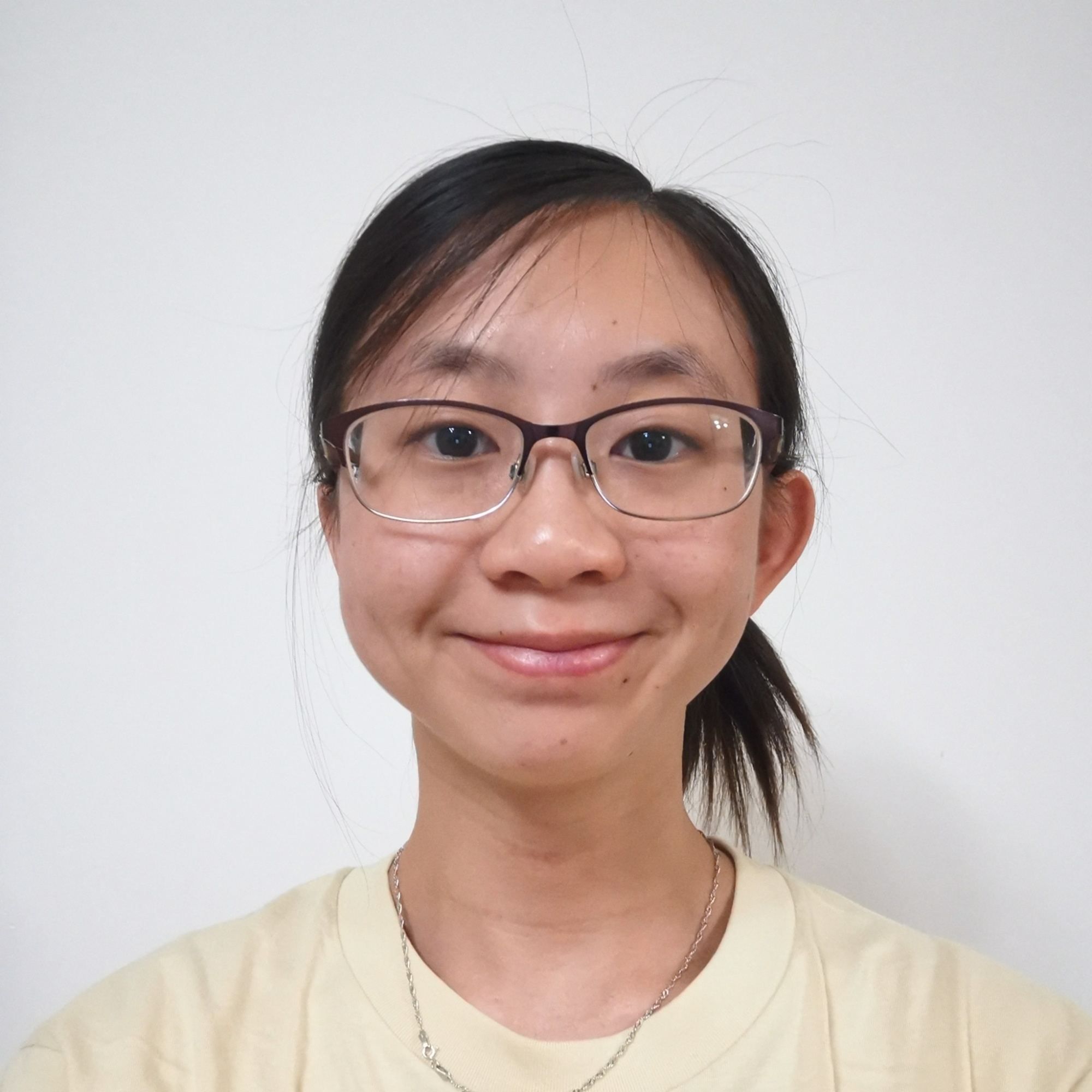
Kate Pham
Leaving Year: 2018
University: MSci Maths & Comp Science, University of Birmingham
Current Occupation: Technical Business Analyst with the Acturis Group
"My university studies have especially honed my technical thinking, whilst involvement in society committees has helped me with communication skills in my day-to-day."
Kate's Profile
What inspired you to pursue this career?
I was looking for a job in the tech industry based in Birmingham, and it was what was available to me at the time.
What 3 things do you love about your role the most?
1. Semi-flexible working hours
2. Being able to work from home
3. Having work that stretches my problem-solving skills.
Briefly describe a typical working day for you
My working day usually consists of project work (building new or updating existing products), client support (fixing live issues) and the occasional team meeting.
What did you enjoy about your university studies? How has this helped you in your career to-date?
My university studies have especially honed my technical thinking, whilst involvement in society committees has helped me with communication skills in my day-to-day.
What are your next career goals?
My plan is to continue growing within the company and further develop my technical expertise.
Favourite Camp Hill memory?
Winning the Innova Design 'Lab of the Future' competition that helped to fund the new science classroom.
What would you say to your teenage self now if you could?
Even if things don't turn out the way you might want them to, they will still turn out fine.
Amal Khan
Leaving Year: 2018
University: BSc in Geology, University of Birmingham
Current Occupation: Software Developer at JP Morgan Chase & Co.
"My favourite memory is the geography trip to Iceland, though I'm torn between that and the senior citizens' party. Both were unforgettable experiences that left a lasting impression on me."
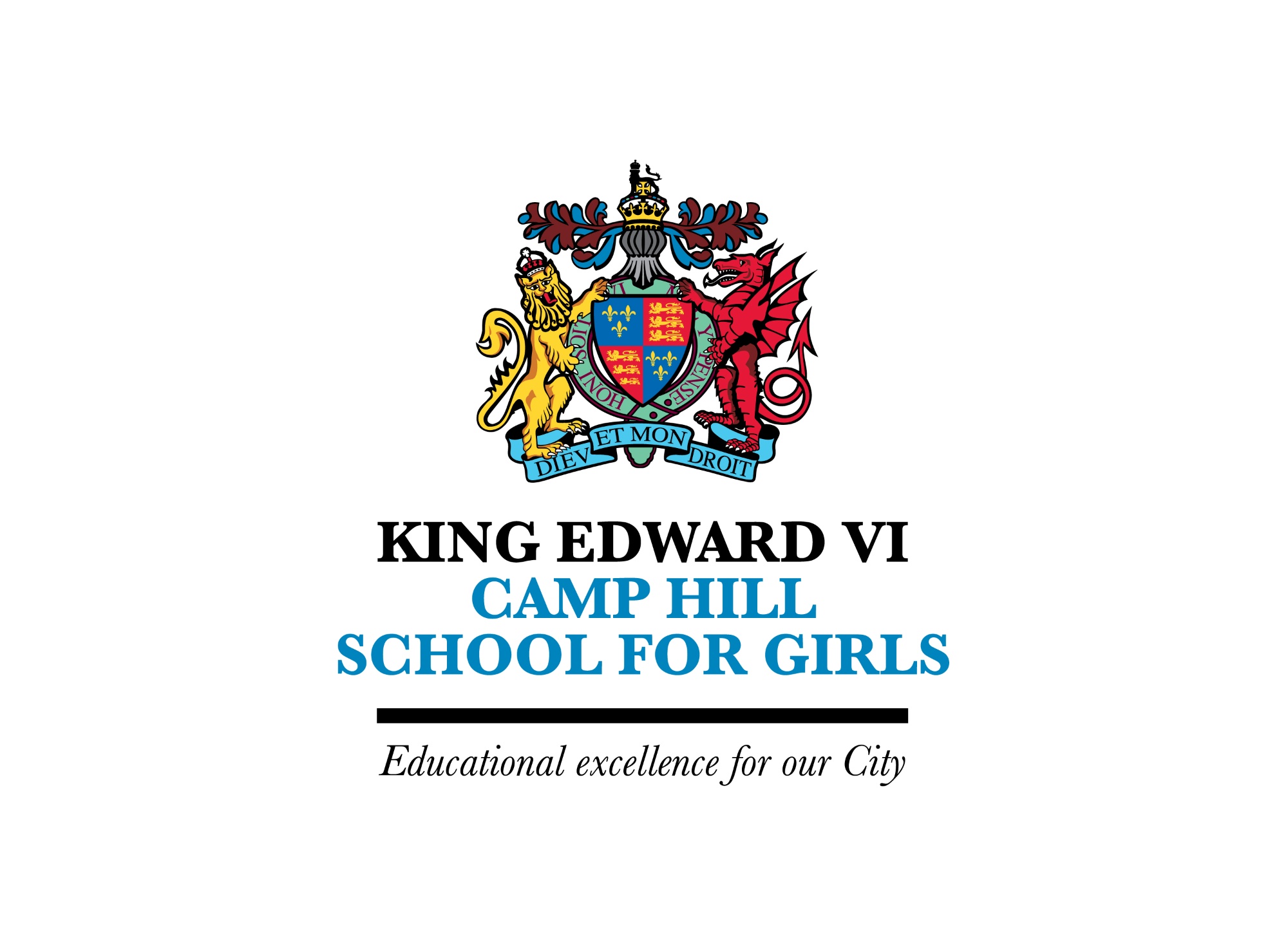
Amal's Profile
What inspired you to pursue this career?
I've always loved puzzles and programming is like a puzzle, where I can be creative and logical all at once. Additionally, the fact that technology is essential to everyday life and is always evolving means that every day is a learning opportunity in this career.
What 3 things do you love about your role the most?
1. The problem-solving aspect.
2. Always learning new things.
3. No two days are the same.
Briefly describe a typical working day for you
I start my day by attending a scrum meeting, which is a quick, daily check-in with my team. This meeting is all about making sure everyone is aligned on what we're working on and discussing any obstacles that might be in the way.
After the meeting, I pick up a Jira ticket, which is like a to-do item that describes a specific task or bug I need to work on. These tasks come from a project management tool called Jira, where all the work is organised.
Then, I might need to talk to the necessary people. This could be other developers, product managers, or even designers to clarify details about the task or get answers to any questions I have. Sometimes I need to collaborate with others to understand what needs to be done and why.
Next, I dive into researching the code and requirements. This means looking at the existing code to figure out how things are working, reading documentation, or talking to teammates to fill in any gaps in my knowledge. This step is important because understanding how the system works is key before I start writing or fixing anything.
Once I've gathered all the necessary information, I work on the task itself, which could involve writing new code, fixing bugs, or improving existing features. Depending on the complexity of the task, it could take anywhere from a few hours to several days to complete.
At the end of the day, I usually take a moment to review my progress, make sure everything is working as expected, and plan what I'll tackle tomorrow.
Throughout my day, I'm constantly juggling between coding, problem-solving, and collaborating with my team.
What did you enjoy about your university studies? How has this helped you in your career to-date?
Studying geology sparked my interest in creative problem-solving and understanding how things work. As a software developer, this background helps me approach complex systems methodically, just like Earth's interconnected processes. I also did programming throughout my career by learning GIS (Geographic Information Systems), which allowed me to combine my geological knowledge with coding skills. I'm used to piecing together incomplete data, which aids in debugging and solving coding challenges. My research and analytical skills from geology help me dive into code and documentation, while my attention to detail helps catch small issues before they become bigger problems. Overall, the skills I developed in geology, analysing systems, problem-solving, research, and programming help me thrive in software development.
What are your next career goals?
My goal is to become a GIS Developer, combining my geology background and programming skills to create tools and models that enhance geological research and spatial data analysis.
Favourite Camp Hill memory?
My favourite memory at school is the geography trip to Iceland, though I'm torn between that and the senior citizens' party. Both were unforgettable experiences that left a lasting impression on me.
What would you say to your teenage self now if you could?
"I know you may be worried about your future or feel like you're not as good as your peers, but if you stay true to yourself and trust your gut, it will all work out. Don't be afraid to embrace change and take risks. Those moments will lead you to amazing opportunities. Keep believing in your unique path, and things will fall into place."

